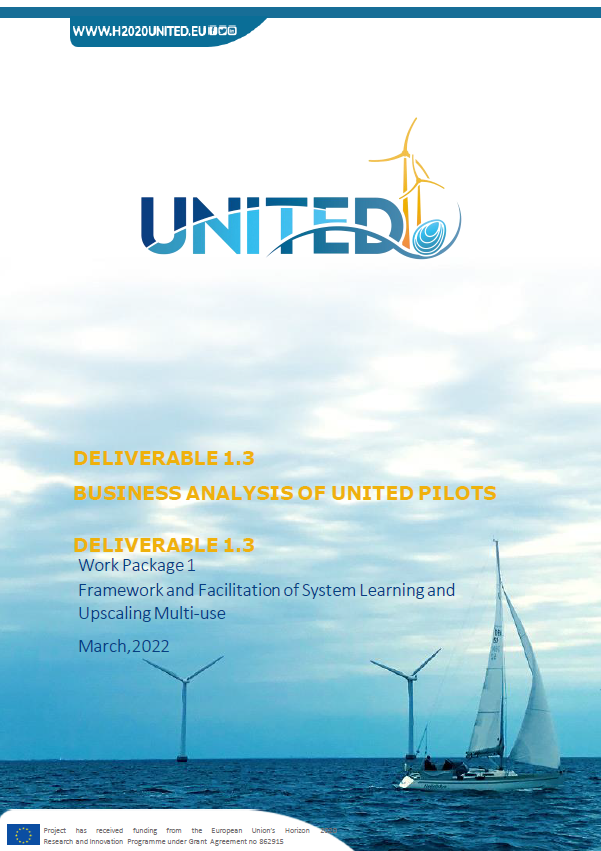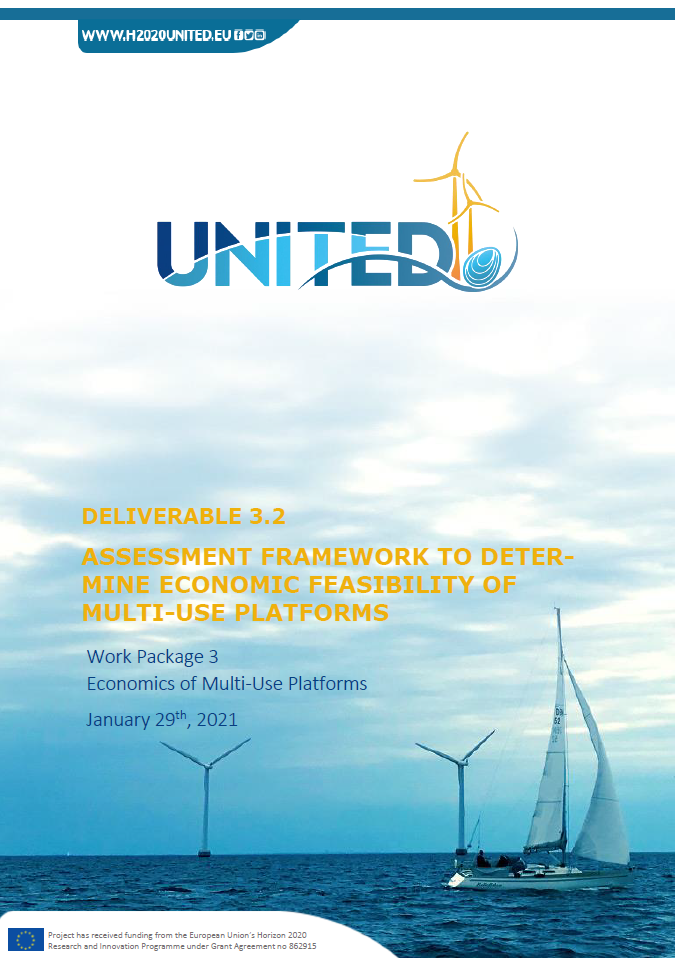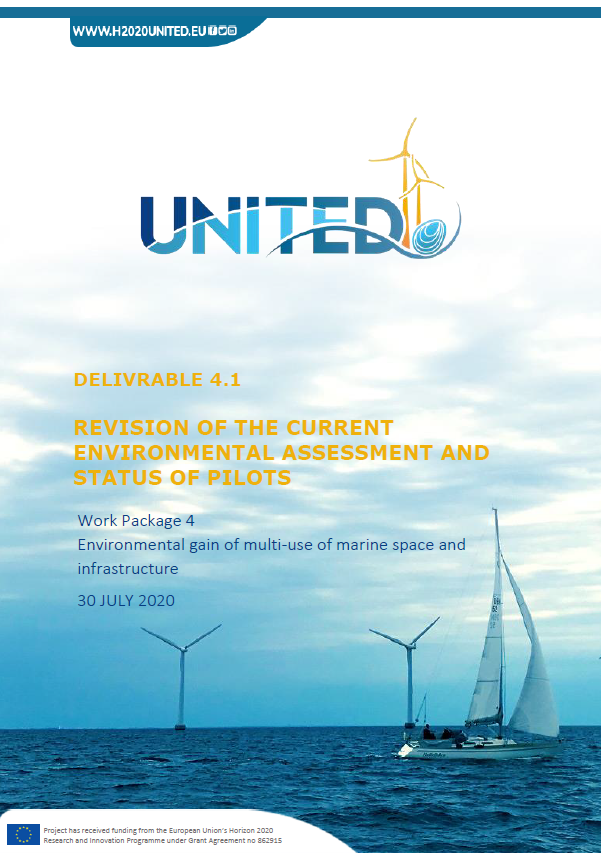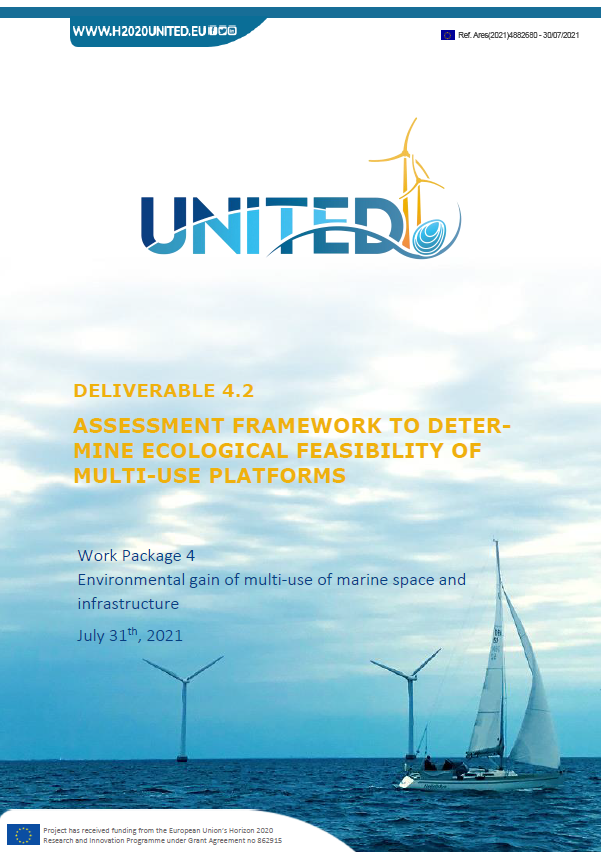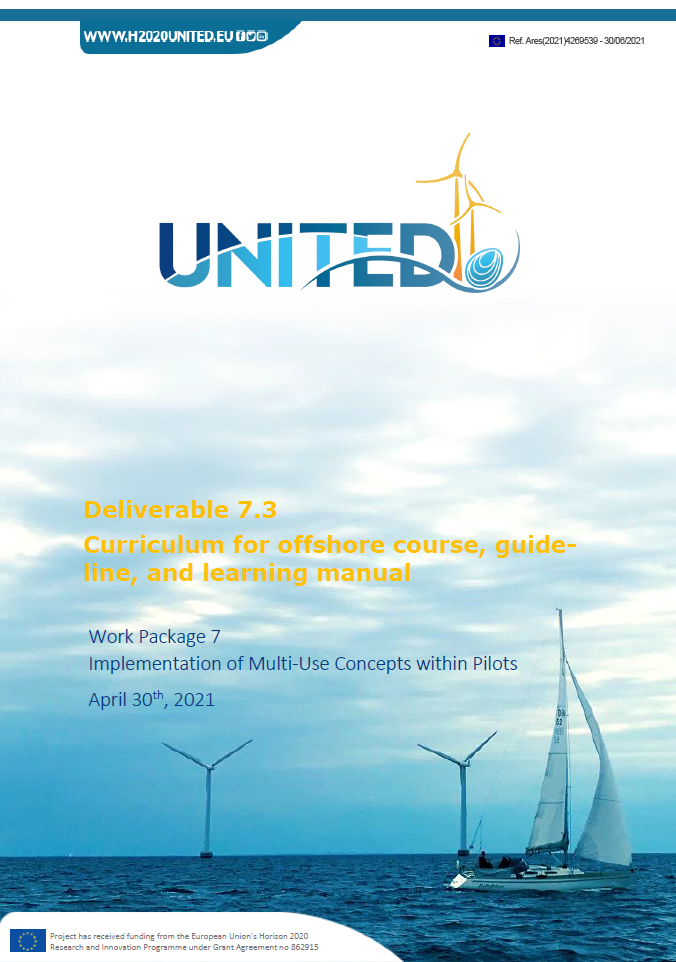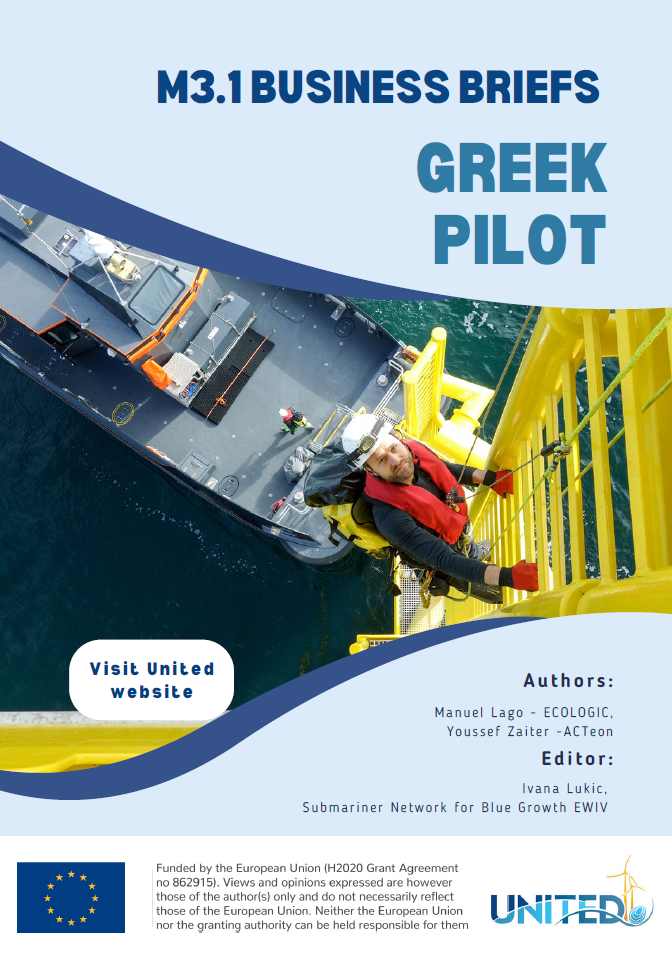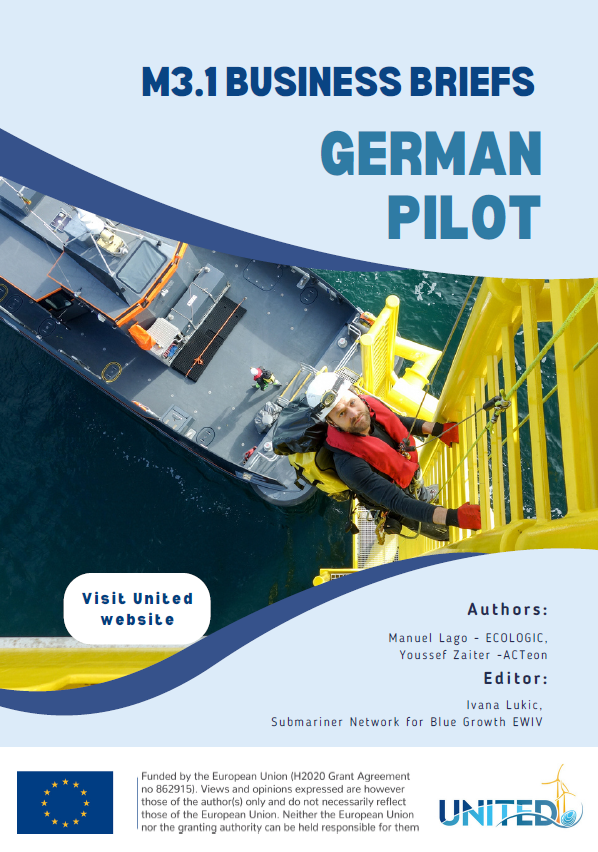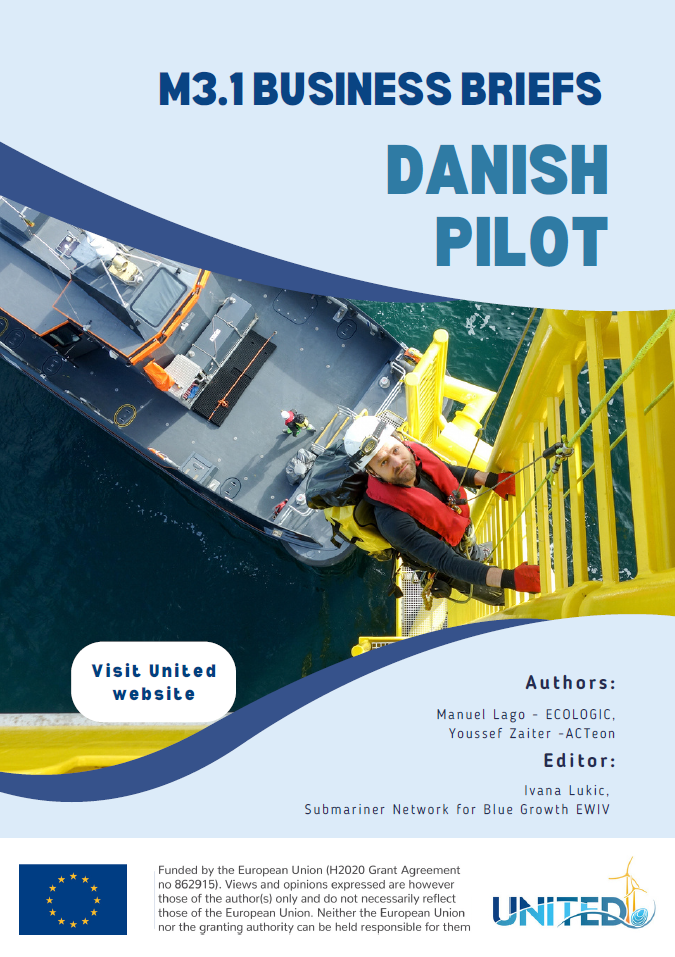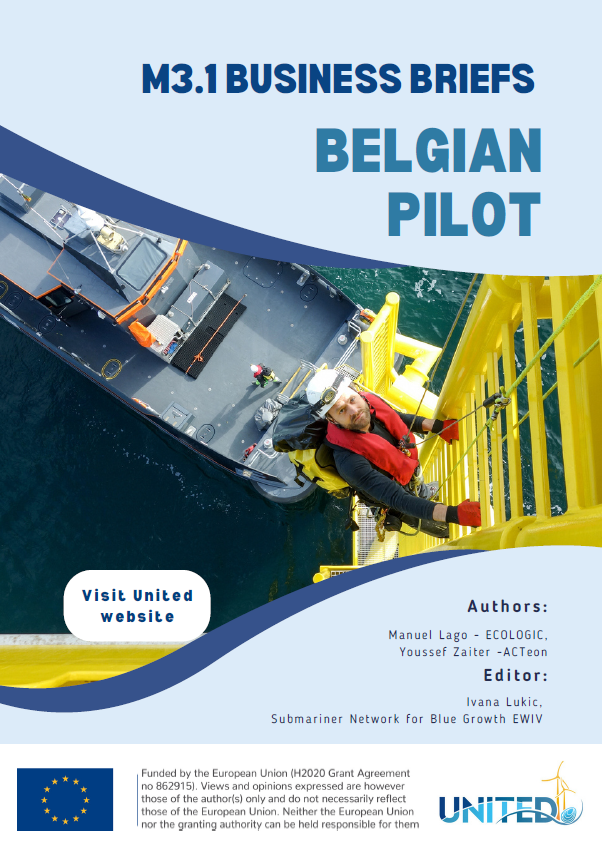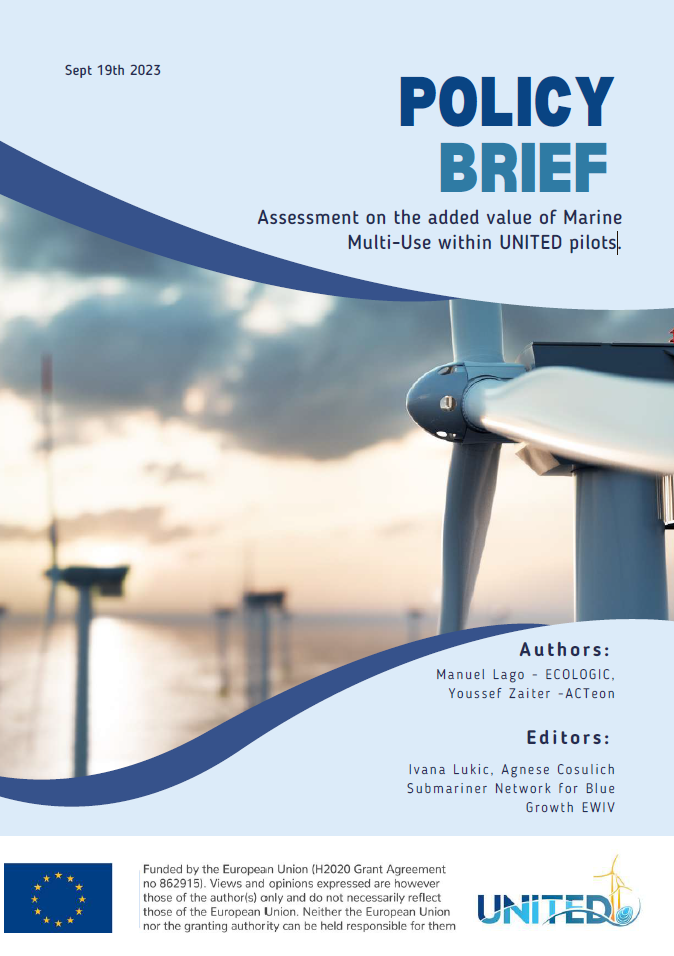Business Analysis of United Pilots
- Publication
- Citation
Zaiter, Y. et al. 2022: Business Analysis of United Pilots. Deliverable 1.3 of the Horizon 2020 project "Multi-use Offshore Platforms Demonstrators for Boosting Cost-effective and Eco-friendly Production in Sustainable Marine Activities" (UNITED).
The UNITED project report "Business Analysis of UNITED Pilots" provides a detailed business analysis of the various pilot projects. This analysis includes an assessment of the economic viability, SWOT and PESTEL analyses as well as a review of the financial aspects of the projects. The aim of the report is to assess the financial attractiveness and feasibility of multi-use concepts in European marine areas, with a particular focus on the synergies and challenges arising from the combination of different maritime activities.
SWOT analysis of the pilot projects
The report carries out detailed SWOT analyses for each pilot project. For example, the analysis of the Belgian pilot project shows that one of the main strengths is the cost reduction for each activity, enabled by the existing synergies between the different activities such as oyster production and seaweed cultivation. This combination leads to diverse and robust revenue streams. Other strengths of the project include a strong marketing story regarding sustainability and an improvement in ecosystem services, which can create additional revenue streams through increased biodiversity or an increase in tourism activities.
Economic benefits and synergies
The analysis highlights the economic benefits resulting from the combination of different maritime activities. The synergies created by the integration of activities such as offshore wind energy, aquaculture and tourism contribute to a more efficient use of resources and an increase in financial profitability.
Assessment of financial viability
The financial viability of each pilot project is comprehensively assessed to determine whether the projects are sustainable and profitable from an economic perspective. This assessment takes into account various financial aspects such as investment costs, operating costs and potential revenue streams to give a complete picture of the financial health of each project.
